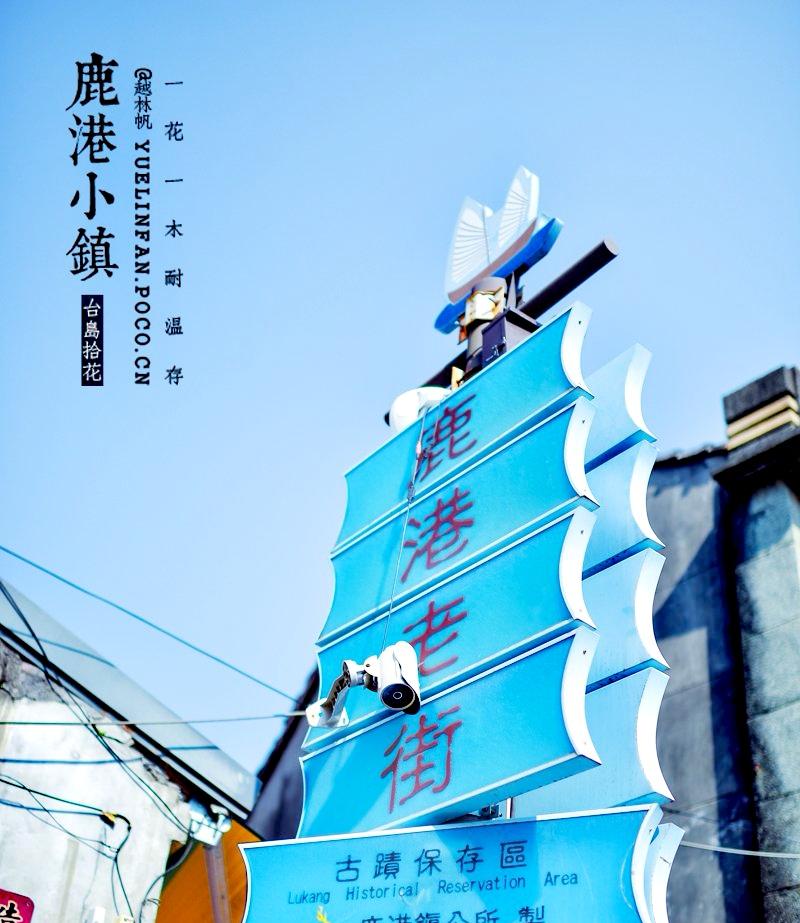Luo Dayou's self-composed and self-sung "Lukang Town" refers to the fishing port in central Taiwan facing the Taiwan Strait, and it is also an important port where Fujian immigrants crossed the strait to Taiwan hundreds of years ago.

Lukang has a rich family, the Gu family, which is one of the traditional Taiwan "five major families" of the Keelung Yan family, the Banqiao Lin family, the Wufeng Lin family, the Lukang Gu family and the Kaohsiung Chen family. The Lukang Koo family, who bears the title of "Taiwan's first magnate," has been active in Taiwan's political and business circles for a long time during the Period of Japanese Occupation, the Kuomintang ruling the country, and the rotation of political parties.
The beginnings of the Gu family began with Koo's father, Koo Hsien Wing (1866-1937). Koo began business at the age of 21, traveling between Taiwan and major ports along the mainland coast. In the process of Japanese troops occupying Taiwan in 1895, Gu Xianrong was elected as a representative by the rich merchants of Dadaocheng in Taipei to lead the Japanese army into Taipei City peacefully to help maintain order in Taipei City. This move is controversial in history, and Gu Xianrong has also been named a "traitor". With the permission of the Japanese, the Koo family obtained the franchise and monopoly rights of a large number of goods such as tea, tobacco, salt, sugar, opium, and camphor in Taiwan, and became the richest merchant in Taiwan at that time. During the Japanese occupation, Gu Xianrong served as the director of the Taipei Baoliang Bureau, the counselor of the Taichung Office, and the counselor of the Governor's Office.
In the middle is Gu Xianrong
After the state government recovered Taiwan, the land reform was carried out, and the stocks and physical bonds of four major companies, such as Taiwan clay, Taiwan paper, industry and mining, agriculture and forestry, were paid to the landlords, and the Gu family exchanged the vast land and the government for Taiwan mud shares. Under the management of Koo Hsien-wing's son Gu Zhenfu (1917-2005), Tai Ni became the leader of traditional industries on the island.
By the 1990s, the Taiwan authorities had successively opened up private investment in telecommunications, finance, energy, and other exclusive concession industries, and the Gu family had expanded its business territory on a large scale, integrating finance, telecommunications, energy, and traditional industries.
After Koo Chun-fu became a giant in Taiwan's industrial and commercial circles, he was nominated as a member of the Standing Committee of the Kuomintang Central Committee in 1982, elected as the first chairman of the "Straits Exchange Foundation" in 1989 and re-elected for five consecutive terms, and in 1993 he achieved his first contact with the "Wang-Koo Talks" after more than 40 years of suspension of cross-strait exchanges, leaving a strong mark in the history of cross-strait peace and development.
Wang Gu talks
Gu Zhenfu's wife, Yan Zhuoyun, is the granddaughter of the thinker Yan Fu, who succeeded Song Meiling as the director general of the "Women's Federation" in 1992 and has now withdrawn from the "Women's Federation" to settle in the United States.
The century-old glory of the Lukang Gu family is a complete chronicle of family inheritance, and it is also the epitome of the origin and take-off of many rich families. Taiwan's century of vicissitudes has also made the Gu family always on the cusp of the storm. The Gu family is in the political and business circles of Zhou Xuan in Taiwan, and the relationship between political and economic ecology and family atmosphere is very delicate. Among them, Gu Zhenfu-Gu Chengyun, a member of the industry, entered the mainland and the international market, and Gu Liansong was sincerely in love with the local financial industry and continued to take the political and commercial route. This is exactly:
Xie Ri entered Taiwan Jiaye Tong, LuKang Gu surname Cheng Xianrong.
The pearls are united with the rich and wide, and the business and politics crown are red.
In addition, Koo Hsien-wing also has a youngest son, Koo Kuan-min, born on October 15, 1926, a Taiwanese entrepreneur with a pro-independence boss and a financial lord, his mother is a Japanese Yoshiko Iwase, and the late Chairman of the SEF Koo Chun-fu is his half-brother.
Gu Kuanmin
Gu Zhenfu and Gu Kuanmin are two brothers